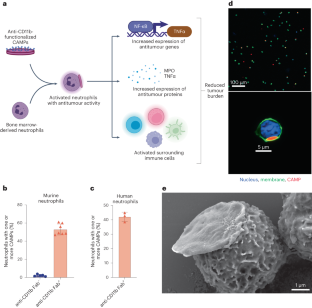2024-03-18 ノースウェスタン大学
<関連情報>
- https://news.northwestern.edu/stories/2024/03/implantable-sensor-could-lead-to-timelier-crohns-treatment/
- https://www.nature.com/articles/s41551-024-01183-w
慢性腸炎の長期モニタリングのための小型埋め込み型温度センサー Miniaturized implantable temperature sensors for the long-term monitoring of chronic intestinal inflammation
Surabhi R. Madhvapathy,Matthew I. Bury,Larry W. Wang,Joanna L. Ciatti,Raudel Avila,Yonggang Huang,Arun K. Sharma & John A. Rogers
Nature Biomedical Engineering Published:18 March 2024
DOI:https://doi.org/10.1038/s41551-024-01183-w

Abstract
Diagnosing and monitoring inflammatory bowel diseases, such as Crohn’s disease, involves the use of endoscopic imaging, biopsies and serology. These infrequent tests cannot, however, identify sudden onsets and severe flare-ups to facilitate early intervention. Hence, about 70% of patients with Crohn’s disease require surgical intestinal resections in their lifetime. Here we report wireless, miniaturized and implantable temperature sensors for the real-time chronic monitoring of disease progression, which we tested for nearly 4 months in a mouse model of Crohn’s-disease-like ileitis. Local measurements of intestinal temperature via intraperitoneally implanted sensors held in place against abdominal muscular tissue via two sutures showed the development of ultradian rhythms at approximately 5 weeks before the visual emergence of inflammatory skip lesions. The ultradian rhythms showed correlations with variations in the concentrations of stress hormones and inflammatory cytokines in blood. Decreasing average temperatures over the span of approximately 23 weeks were accompanied by an increasing percentage of inflammatory species in ileal lesions. These miniaturized temperature sensors may aid the early treatment of inflammatory bowel diseases upon the detection of episodic flare-ups.


